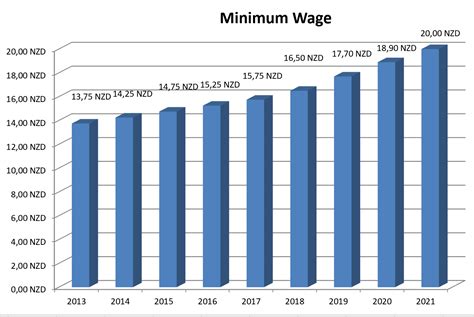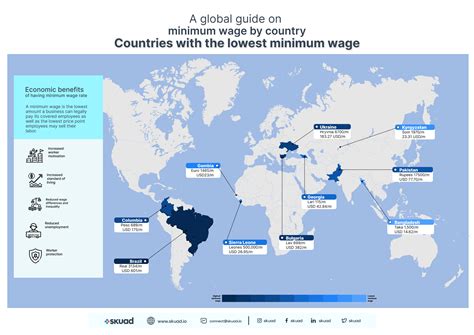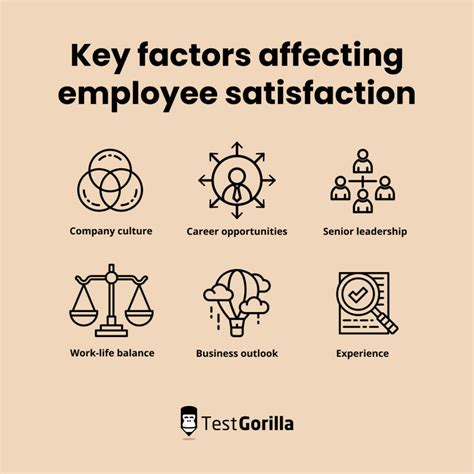Considering a move to New Zealand or starting your career there? Understanding the country's wage structure is a critical first step. While many factors determine your ultimate earning potential, it all starts with the legal baseline: the minimum wage. New Zealand is known for having one of the most robust minimum wages in the world, providing a solid starting point for workers across the country.
This guide will break down the official minimum salary in NZ, explain who is eligible, and most importantly, detail the key factors that will help you build a career that takes your earnings far beyond this legal floor.
What is the Minimum Wage in New Zealand?

The minimum wage in New Zealand isn't a job title but a legal requirement. It is the lowest hourly, daily, or weekly wage that employers can legally pay their employees. The purpose of the minimum wage is to provide a baseline standard of living and protect workers from underpayment.
The New Zealand government reviews these rates annually and any changes typically take effect on April 1st. There are three different types of minimum wage:
1. Adult Minimum Wage: This is the primary rate that applies to all employees aged 16 and over who are not classified as a "starting-out" worker or a "trainee."
2. Starting-Out Minimum Wage: This rate applies to younger workers aged 16-19 who are new to the workforce. It can be paid for the first six months of continuous employment with a single employer.
3. Training Minimum Wage: This applies to employees aged 20 or over who are completing recognized industry training involving at least 60 credits a year.
It is crucial to know your rights and ensure you are being paid the correct rate for your age and situation.
Current Minimum Wage Rates in NZ (as of 1 April 2024)

The average salary for someone earning the minimum wage is, by definition, the minimum wage itself. The key is to understand the current official rates.
According to Employment New Zealand, a division of the Ministry of Business, Innovation & Employment (MBIE), the minimum wage rates before tax as of April 1, 2024, are:
| Wage Category | Per Hour | Per 8-Hour Day | Per 40-Hour Week |
| :--- | :--- | :--- | :--- |
| Adult | NZ$23.15 | NZ$185.20 | NZ$926.00 |
| Starting-Out & Training | NZ$18.52 | NZ$148.16 | NZ$740.80 |
*Source:* *Employment New Zealand, "Minimum wage rates," 2024.*
These figures represent the gross pay before taxes (like PAYE) and other deductions (like KiwiSaver contributions). This is the fundamental salary floor for almost all employees in the country.
Key Factors That Influence Your Salary Beyond the Minimum

While the minimum wage provides a safety net, it is not a long-term career goal. Your objective should be to acquire the skills and experience that command a much higher salary. Here are the most significant factors that will determine your earning potential in New Zealand.
###
Level of Education
Your educational qualifications are a primary driver of earning potential. While many entry-level jobs that pay the minimum wage do not require a formal degree, pursuing higher education opens doors to specialized, higher-paying professions. A bachelor's degree, postgraduate diploma, or master's degree in a high-demand field like technology, engineering, finance, or healthcare will almost certainly lead to a starting salary significantly above the minimum wage.
For example, a graduate software developer might start on a salary of NZ$60,000-$75,000, more than double the annual income of a minimum wage earner.
###
Years of Experience
Experience is arguably the most powerful factor in salary growth. An entry-level employee in any industry may start at or near the minimum wage. However, as you gain experience, your value to an employer increases dramatically.
- Entry-Level (0-2 years): Often starts near the minimum wage in sectors like retail or hospitality, but higher in professional fields.
- Mid-Career (3-8 years): You have proven your skills and can manage projects or teams. Your salary should be well above the median national wage.
- Senior/Experienced (8+ years): With extensive experience, you hold specialist knowledge and leadership capabilities, putting you in the top tier of earners in your field. A senior retail manager, for instance, can earn significantly more than a junior cashier who may be on the minimum wage.
###
Geographic Location
While the *minimum* wage is set nationally, *average* salaries vary considerably by region due to differences in job markets and the cost of living. Major metropolitan areas with strong economies typically offer higher wages.
According to salary aggregator Payscale, the average salaries in New Zealand's main centres reflect this trend:
- Auckland: Tends to have the highest average salaries due to its large corporate and industrial base, but also has the highest cost of living.
- Wellington: Has a strong public sector and tech industry, leading to high average wages.
- Christchurch: Offers a growing job market, particularly in construction, engineering, and manufacturing, with competitive salaries.
Working in a major city provides more opportunities to find roles that pay well above the minimum wage compared to smaller towns or rural areas.
###
Company Type and Industry
The industry you work in and the type of company you work for have a massive impact on your pay.
- Industry: Sectors like Information Technology, Finance, Engineering, and Healthcare consistently pay the highest salaries. In contrast, industries like retail, hospitality, and agriculture are where you will find the highest concentration of minimum wage jobs.
- Company Type: Large multinational corporations and government departments typically have structured salary bands that are much higher than those offered by small, local businesses. A job in a tech startup, while potentially risky, could also offer high rewards through competitive salaries and stock options.
###
Area of Specialization
Within any given field, specialization is key to increasing your earnings. A general administrator may earn a modest salary, but an Executive Assistant specializing in supporting C-suite executives will command a much higher wage. Similarly, a general practice nurse earns a solid income, but a Nurse Practitioner with a specialty in anesthetics or cardiology will be among the highest earners in the healthcare sector. Focusing on in-demand niche skills makes you a more valuable and harder-to-replace asset.
Job Outlook

The job outlook for roles that typically pay the minimum wage—such as those in hospitality, retail, and cleaning—is directly tied to the overall health of the economy. These sectors are often characterized by high turnover, providing a consistent stream of entry-level opportunities.
However, the more relevant outlook is for skilled workers. According to reports from New Zealand's Ministry of Business, Innovation & Employment (MBIE), there is a persistent and growing demand for skilled professionals in areas such as:
- Technology: Software Developers, Cybersecurity Analysts, and Data Scientists.
- Healthcare: Nurses, Doctors, and Allied Health Professionals.
- Construction & Engineering: Surveyors, Civil Engineers, and skilled tradespeople.
Pursuing a career in one of these high-growth sectors is the most reliable strategy for ensuring your job prospects and salary potential remain strong.
Conclusion

The minimum salary in New Zealand provides a crucial and respectable starting point for workers. However, it should be viewed as a floor, not a ceiling. For prospective students and professionals looking to build a successful career in New Zealand, the key takeaways are clear:
- The Minimum Wage is a Baseline: The adult minimum wage of NZ$23.15 per hour is a legal safety net.
- Growth Comes from Value: Your long-term earning potential is not determined by the government, but by the value you create.
- Invest in Yourself: Prioritize education, gain meaningful experience, and pursue in-demand specializations.
- Be Strategic: Target high-growth industries and be mindful of how location can impact your opportunities and salary.
By focusing on these factors, you can build a career path that offers not just a living wage, but a prosperous and fulfilling professional life in New Zealand.
